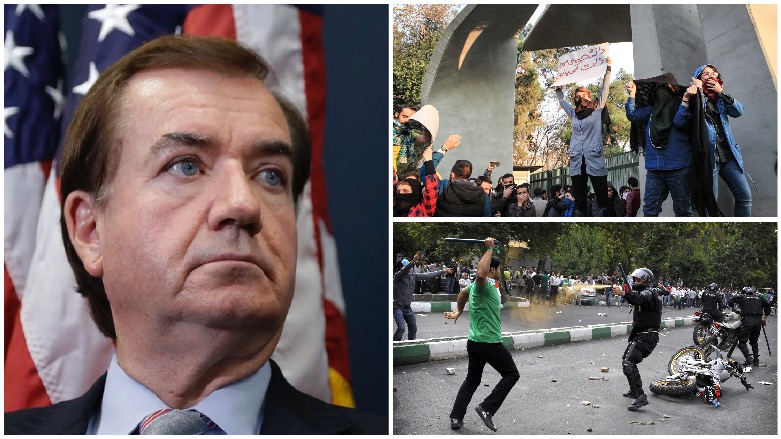US Congress supports Iranian protests

WASHINGTON DC, United States (Kurdistan 24) – On Tuesday, the US House of Representatives passed a bill supporting the protests in Iran.
By an overwhelming majority of 415 to 2, the House approved legislation “supporting the rights of the people of Iran to free expression” and “condemning the Iranian regime.”
The bill will now go to the Senate for its approval.
The legislation “condemns the Iranian regime’s serious human rights abuses against the Iranian people, significant corruption, and destabilizing activities abroad.”
And, it “demands that the Iranian regime abide by its international obligations with respect to human rights and civil liberties, including freedoms of assembly, speech, and press.”
It calls on the Trump administration “to use targeted sanctions” against the regime and work with the UN Security Council, as well as the UN Human Rights Council, to condemn the regime’s “ongoing human rights violations,” and to establish “a mechanism by which the Security Council can monitor such violations.”
Moscow supports Tehran, however. When the Security Council met in an emergency session on Friday to discuss the regime’s suppression of the Iranian protests, Russia argued that the issue did not belong on the agenda of the Security Council because it was not a threat to international peace and security.
Almost certainly, Moscow would adopt the same position on any US-led effort to establish a Security Council mechanism for monitoring the Iranian regime’s human rights violations.
The Chairman of the House Foreign Affairs Committee, Rep. Ed Royce (R-California), issued a statement hailing the bill’s passage while suggesting more would follow.
Royce’s statement explained that he planned to introduce more legislation “to push the corrupt Revolutionary Guards out of the Iranian economy.”
On Friday, the Trump administration will decide whether it will certify the Iranian nuclear deal, known as the JCPOA (Joint Comprehensive Plan of Action).
In 2015, when Congress approved the JCPOA, it required the President to certify every 90 days that Iran was abiding by the agreement and that the agreement remained in the US interest.
The last deadline was Oct. 15, and US President Donald Trump did not certify Iran’s compliance. However, the lack of certification did not bring about a re-imposition of nuclear-related sanctions, although it could.
The next deadline is Jan. 13. Asked at a State Department press briefing what the administration intended to do, Under Secretary for Public Diplomacy and Public Affairs Steven Goldstein responded, “There have been ongoing discussions” on the issue.
Secretary Rex Tillerson “will be meeting with the President and Secretary [Jim] Mattis and other officials later this week at the White House, and we would expect a decision on Friday,” he said.
Goldstein also described the various ways in which the State Department is working to counter Tehran’s efforts to control the internet and censor social media.
“In 2017, more than four million Iranians relied on the Department of State-funded anticensorship tools, including VPNs (Virtual Private Networks),” Goldstein said.
“Our internet tools increased dramatically—as much as tenfold—over the weekend of Dec. 29 through Jan. 2,” he added, affirming that “social media is a legitimate form of communications” and suggesting that Iranians could find more information on the State Department’s Facebook page and its Twitter site.
Iran’s Supreme Leader, Ayatollah Ali Khamenei, spoke Tuesday in Qom, in a rare public address.
Khamenei denounced President Trump and threatened revenge.
“This man who sits at the head of the White House — although, he seems to be a very unstable man—he must realize that these extreme and psychotic episodes won’t be left without a response,” the Iranian leader warned.
Editing by Karzan Sulaivany
